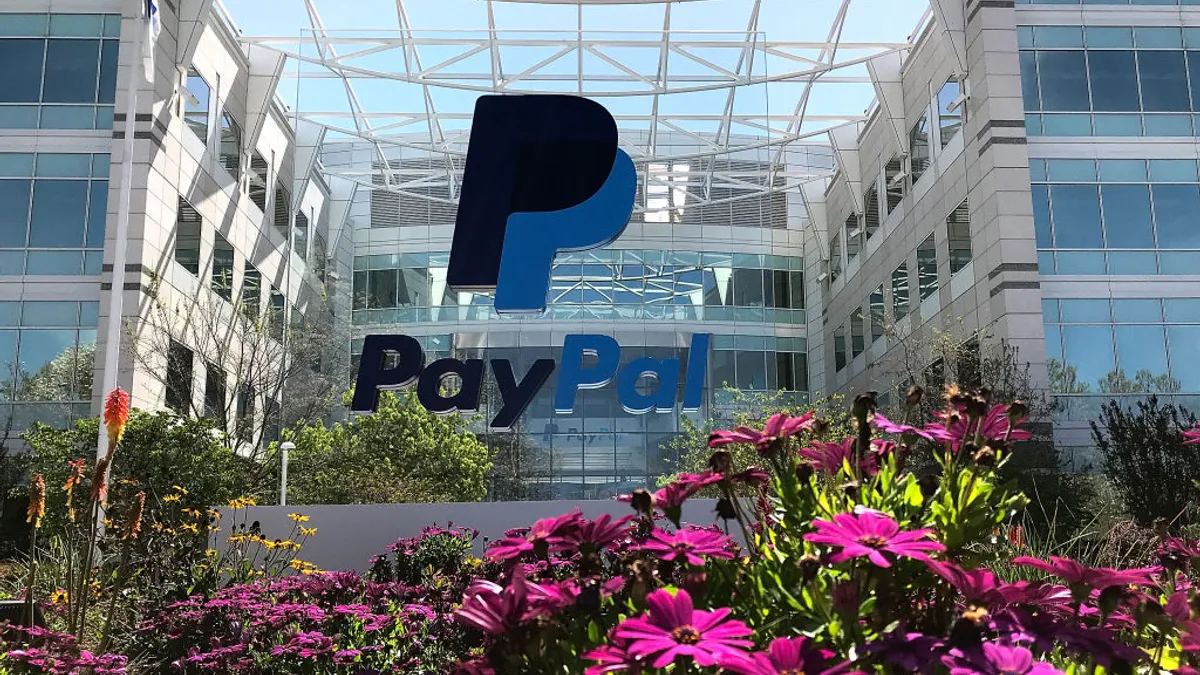Digital payments company PayPal is bracing for the impact of an impending Consumer Financial Protection Bureau $8 cap on credit card late fees due to take effect this month, barring possible court action.
The impact on PayPal would be indirect, by way of one of its credit card partners, but for other companies, including Bread Financial and Synchrony, the effects would be felt more directly. In all cases, the companies expect a drag on revenue would flow through and reduce earnings.
All of the companies also say they’re mulling moves to soften the blow to their financial results.
“We have been very focused on mitigation,” PayPal’s Chief Financial Officer Jamie Miller said on a webcast Tuesday to discuss the company’s first-quarter results. “We have actions underway, but, really in any scenario, it takes time for those offsets to fully set in.”
San Jose, California-based PayPal has been seeking to jump-start profitable growth following the exit of former long-time leader Dan Schulman last year and the ascent of CEO Alex Chriss, who took over as his successor in September. Chriss has revamped PayPal’s management team, including hiring Miller, and is seeking to change its services while evaluating parts of the business that may be shed.
The company is also responding to a changing federal regulatory environment in which the Biden administration is particularly focused on protecting consumers from extraneous fees. In March, the CFPB approved a new $8 late fee cap, forcing a significant reduction from fees that have been as high as $41.
The new cap was scheduled to be in place by May 14, but opponents of the rule, including the U.S. Chamber of Commerce, sued in federal court to delay implementation.
With a clutch of credit card companies deriving significant revenue from fees paid by consumers who make late payments on their balances, the new rule has the potential to hurt corporate income. That’s particularly true for companies that issue more cards to subprime consumers, including Synchrony Financial and Bread Financial.
For PayPal, the impact flows through from a card issuer partner it works with. The company didn’t immediately respond to a request for the name of that partner.
“If that were to be implemented, it would be approximately a three percentage point impact to (earnings per share) growth for the year, but that is before mitigation,” Miller said during the call. “By 2025, we would expect roughly half of that impact to be offset, and then more over time.”
PayPal reported first-quarter net income rose 12% to $888 million as revenue increased 9% to $7.7 billion, according to the earnings press release.
Bread is girding for a more direct impact. During an April 25 webcast with analysts to discuss its first-quarter results, the company warned about the various levels of lowered revenue that could result from the new cap, depending on when the rule takes effect. The company is already raising interest rates on some of its cards, imposing new fees and seeking to renegotiate contracts with some of its retail partners, executives said.
Synchrony also said last Wednesday that it’s boosting interest rates for customers in advance of the new late fee cap, according to an American Banker report last week.











